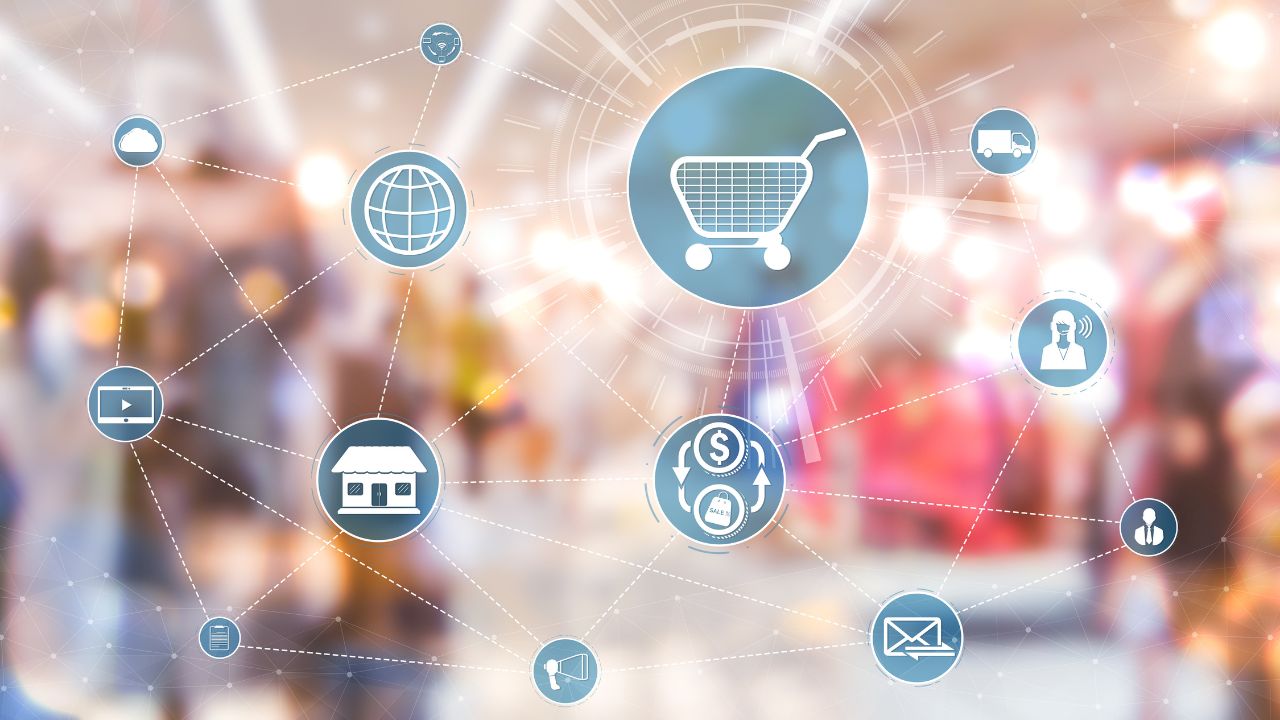As the retail landscape rapidly shifts from traditional brick-and-mortar shops to online stores, the benefits of online retailing have become impossible for businesses to ignore. With consumers now more digitally connected than ever, embracing this new era of eCommerce is no longer optional—it’s essential.
Online retailers now play a vital role in providing an enhanced customer experience, streamlined operations, and global reach. In this blog, we explore the key benefits of online retailing for businesses and why it’s essential for long-term growth.
1. Broader Market Reach
One of the most significant benefits of online retailing is the ability to reach a global audience. Unlike physical stores, which are limited by location, an online shop lets businesses reach customers anywhere in the world. Whether you’re a small brand or a big company, selling online helps you connect with a wider audience.
Online retailers can tap into new markets without the need for additional infrastructure. With the right commerce platform and marketing strategies, businesses can reach customers who may never visit their physical stores.
2. Reduced Operational Costs
Running a traditional retail store comes with substantial expenses such as rent, utilities, staffing, and maintenance. In contrast, online retailers enjoy significantly reduced operational costs. You don’t need to run a costly store, and automation in inventory and order handling helps cut costs even more.
Online retailing enables businesses to operate efficiently with fewer resources while maximizing profitability. This lean model lets new businesses start with low costs and helps existing ones grow without heavy spending.
3. Enhanced Customer Convenience
Customers love the convenience of being able to shop 24/7 from the comfort of their homes. Online shopping experience eliminates the need to travel, wait in lines, or deal with crowded stores. With just a few clicks, shoppers can find what they need, compare prices, read reviews, and complete a purchase in minutes.
This convenience not only increases customer satisfaction but also boosts conversion rates. Online retailers who provide a seamless shopping experience can build a loyal customer base and drive repeat purchases.
4. Personalized Shopping Experience
Online retailers can leverage data and analytics to create a personalized shopping experience for each customer. Businesses can connect with customers through things like product suggestions and special discounts based on their browsing.
This level of customization is difficult to achieve in traditional retail. Using AI and customer insights, online retail businesses can increase sales, improve customer satisfaction, and strengthen brand loyalty.
5. Efficient Order Fulfillment and Inventory Management
Modern e-commerce platforms allow for automated order fulfillment and real-time inventory management. This efficiency ensures that customers receive their products quickly and accurately. It also helps reduce the risk of stockouts or overstocking, which can hurt business operations.
Online retailers can partner with third-party logistics providers for warehousing and shipping, further simplifying the supply chain. As a result, businesses can focus on core areas such as product development, marketing strategies, and customer service.
6. Lower Marketing Costs with Greater Impact
Online marketing strategies such as SEO, email campaigns, social media advertising, and influencer collaborations are generally more cost-effective than traditional advertising methods. Online retailers can target specific customer segments, track campaign performance in real time, and optimize their marketing spend.
Platforms like Facebook, Instagram, and Google Ads enable businesses to reach customers with pinpoint accuracy. Creating great content and eye-catching visuals helps businesses attract more visitors to their online shop and grow their presence online.
7. Greater Flexibility and Scalability
Online retail businesses can easily scale operations to accommodate growth. Whether it’s launching new products, entering new markets, or handling seasonal demand, digital stores can adapt quickly.
With flexible commerce platforms, online retailers can make changes to product listings, pricing, or promotions in real time. This agility helps businesses stay competitive and responsive to market trends.
8. Stronger Brand Identity and Merchandising
Retail merchandising plays a crucial role in shaping customer perception. Through strategic brand marketing services and retail merchandising in marketing, online retailers can create a consistent and appealing brand image. Visual merchandising elements such as banners, layout, and color schemes influence how customers interact with the brand.
A strong brand identity helps differentiate a business from competitors. By investing in branding and identity, businesses can build trust, attract attention, and convert visitors into loyal customers.
9. Insights and Analytics
Online retailing provides access to a wealth of data that can be used to make informed decisions. Businesses can track website traffic, conversion rates, customer demographics, purchasing behavior, and more.
These insights allow online retailers to refine their marketing strategies, improve product offerings, and enhance the overall online shopping experience. Analytics help businesses understand what works and what doesn’t, enabling continuous improvement.
10. Improved Customer Service Options
Customer service in online retailing has become more dynamic and accessible. With features like live chat, chatbots, FAQs, and email support, businesses can provide real-time assistance to customers.
Unlike physical storefronts where help might be limited by staffing, online stores offer multiple touchpoints for support. Providing excellent customer service strengthens brand loyalty and encourages positive reviews.
11. Seamless Integration with Social Media
Social media platforms are essential tools for online retailers. They help businesses connect with audiences, promote products, and build communities. Through integrated shopping features, customers can now browse and purchase directly from social platforms.
This synergy between online shopping experience and social engagement enhances visibility and drives sales. Social media also supports brand marketing services by allowing businesses to share stories, launch campaigns, and engage with followers authentically.
12. Adapting to Changing Consumer Behavior
The shift from traditional retail to online shopping has been driven by changes in consumer behavior. More people prefer to buy goods online due to convenience, price comparisons, and access to reviews.
Online retailers must stay ahead by offering innovative online offerings and staying in tune with customer preferences. Flexibility, responsiveness, and a customer-first approach are key to thriving in the modern retail environment.
13. Reduced Dependency on Physical Store
Businesses are no longer limited by the constraints of a physical store. Online retailing reduces the need for a physical storefront, which means companies can test new markets and products with minimal risk.
This model supports rapid expansion and experimentation. Businesses can operate multiple online stores targeting different customer segments or regions without incurring traditional overhead costs.
14. Cost-Effective Business Development
Online retailing supports efficient business development. It allows companies to launch quickly, reach customers, and validate business ideas without heavy upfront investments. With access to digital tools and resources, entrepreneurs can create and grow a successful online retail business from scratch.
Branding and identity, combined with robust marketing strategies, ensure that businesses can build strong customer relationships and achieve sustainable growth.
15. Empowering Small Businesses and Entrepreneurs
Online retail levels the playing field for small businesses and startups. With minimal investment and the right approach, new entrants can compete with established brands. A compelling online offering, strategic retail and visual merchandising, and excellent customer service can help small businesses carve out a niche.
This empowerment encourages innovation, diversity, and competition in the retail industry, benefiting consumers and businesses alike.
Conclusion
Online retailing has redefined the way businesses operate and engage with customers. Online retailing offers clear benefits like wider reach, lower costs, personalized shopping, and better brand visibility. As consumer behavior continues to evolve, businesses must adapt and embrace digital transformation to stay competitive.
Ready to grow your brand, serve customers better, and boost your online retail business? Team up with the right experts. Marketing Immersion can help you implement impactful retail merchandising and brand marketing strategies tailored for success.
Start your journey today and unlock the full potential of online retail.






